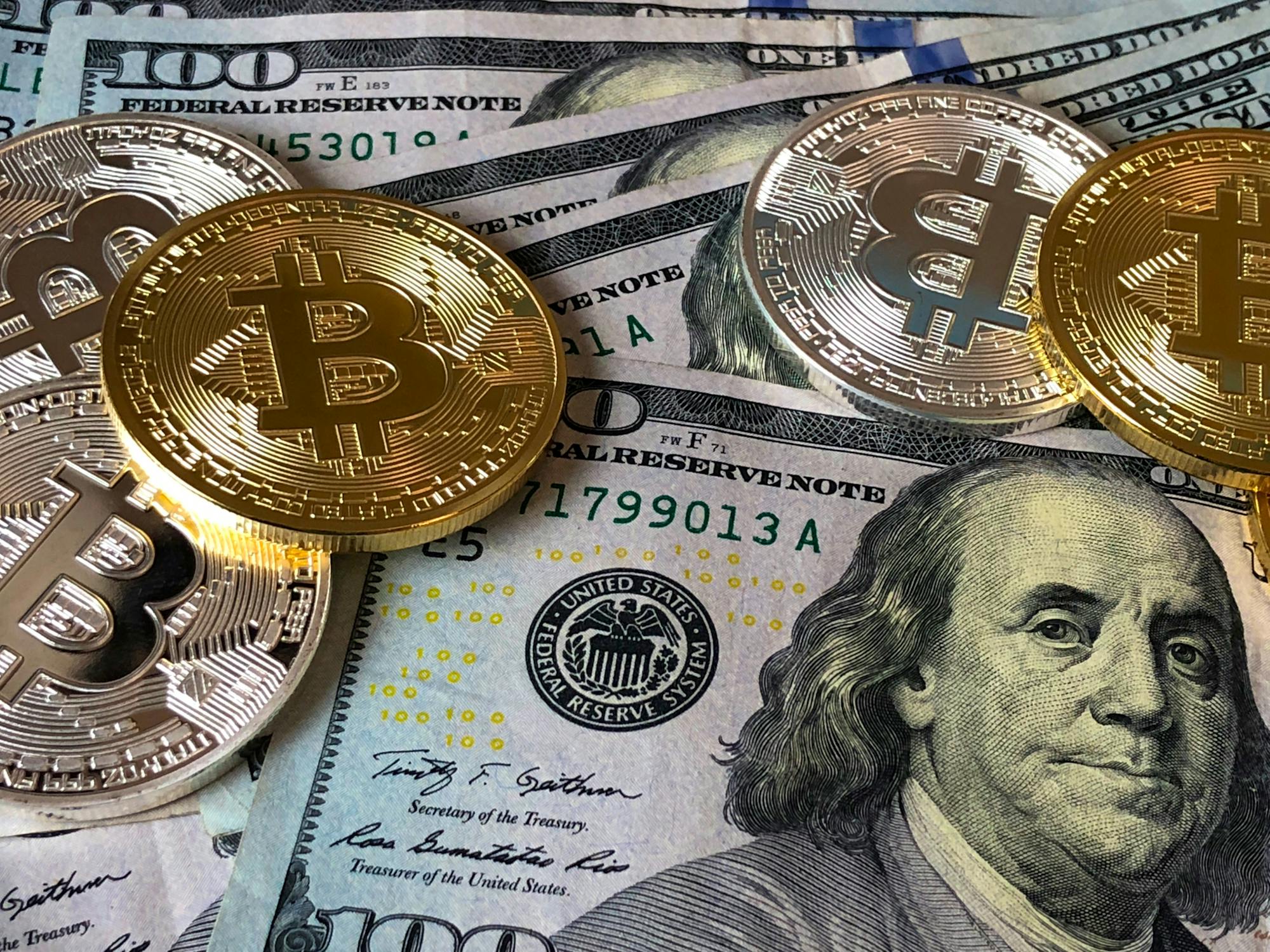The world of cryptocurrency is no longer a Wild West frontier—it’s a bustling marketplace that’s become more accessible than ever. In 2025, one of the most common dilemmas new investors face is whether to invest through Bitcoin ETFs or buy crypto directly. For beginners, this decision can feel like choosing between two completely different worlds.
But here’s the good news: you don’t have to be a tech wizard or a Wall Street veteran to make the right choice. With the right guidance, you can enter the crypto market safely, smartly, and with confidence.
Table of Contents
Understanding Bitcoin as a Digital Asset
Bitcoin is more than just digital money. It’s a decentralized, peer-to-peer currency that operates without a central authority—no banks, no governments, just math and code. It’s often called “digital gold” due to its limited supply (21 million coins) and its role as a hedge against inflation.
In 2025, Bitcoin is widely accepted, regulated in many countries, and integrated into mainstream financial platforms, making it easier than ever for beginners to invest.
What Is a Bitcoin ETF?
A Bitcoin ETF (Exchange-Traded Fund) is a traditional investment vehicle that mirrors the price of Bitcoin. Instead of buying and holding Bitcoin directly, you buy shares in a fund that either owns Bitcoin or tracks its price using futures contracts.
Popular Bitcoin ETFs in 2025:
- BlackRock iShares Bitcoin Trust
- Fidelity Wise Origin Bitcoin ETF
- ARK 21Shares Bitcoin ETF
These ETFs trade on stock exchanges like the NYSE or Nasdaq, just like shares of Apple or Tesla.
How Buying Crypto Directly Works
Buying crypto directly means owning real Bitcoin that lives on the blockchain. To do this, you’ll need:
- A crypto exchange account (like Coinbase or Kraken)
- A crypto wallet (hot or cold)
- A bit of education on private keys and seed phrases
You buy Bitcoin, withdraw it to your wallet, and manage it yourself.
Pros of Investing in Bitcoin ETFs
- Ease of Access: Buy through your brokerage account—no crypto wallet needed.
- Regulation: ETFs are governed by financial regulators, offering investor protection.
- Tax Reporting: Clearer tax documentation compared to direct crypto trades.
- No Security Hassles: No worrying about lost wallets or hacked accounts.
Perfect for beginners who want crypto exposure without the tech headache.
Cons of Bitcoin ETFs

- No Real Ownership: You don’t own the actual Bitcoin—just exposure to its price.
- Management Fees: ETFs charge annual fees (typically 0.20%–0.75%).
- Limited Utility: You can’t use your ETF shares to interact with DeFi, staking, or other crypto-native tools.
Pros of Buying Crypto Directly
- True Ownership: You hold the actual Bitcoin in your wallet.
- Access to DeFi: Use Bitcoin in lending, staking, or earning yield.
- Control: No intermediaries—just you and your keys.
- Anonymity: Greater privacy compared to traditional financial systems.
Great for those who want full control and to explore the broader crypto ecosystem.
Cons of Buying Crypto Directly
- Security Risk: Lose your keys, lose your coins. Period.
- Tech Learning Curve: Wallets, seed phrases, gas fees—there’s a lot to learn.
- Scams and Phishing: More vulnerable to cyber threats.
- Tax Complexity: Every trade, swap, or conversion may be a taxable event.
Top Bitcoin ETFs in 2025
| ETF Name | Ticker | Management Fee | Provider |
|---|---|---|---|
| BlackRock iShares Bitcoin Trust | IBTC | 0.25% | BlackRock |
| Fidelity Wise Origin Bitcoin ETF | FBTC | 0.21% | Fidelity |
| ARK 21Shares Bitcoin ETF | ARKB | 0.30% | ARK Invest |
| Bitwise Bitcoin ETF | BITB | 0.20% | Bitwise |
These ETFs are gaining popularity among first-time investors for their simplicity.
Best Platforms to Buy Bitcoin Directly in 2025
:max_bytes(150000):strip_icc()/GettyImages-2213700800-77cded3ebea143ca895cd68772df49ce.jpg)
- Coinbase – Easiest for beginners with a clean interface
- Kraken – More advanced features and low fees
- Gemini – Regulated and secure for U.S. users
- Cash App – Quick Bitcoin purchases with bank integration
- Ledger or Trezor – For storing your Bitcoin offline (cold storage)
Choose one based on your comfort level and how much control you want.
Key Differences Between ETFs and Direct Ownership
| Feature | Bitcoin ETF | Direct Bitcoin Ownership |
|---|---|---|
| Ownership | Indirect | Full, decentralized |
| Accessibility | High (via broker) | Medium (requires wallet) |
| Security Responsibility | Custodian-managed | User-managed |
| Transaction Fees | Low to none | Exchange + gas fees |
| Use in DeFi | No | Yes |
| Regulation | Heavily regulated | Lightly regulated |
Security Considerations
With Bitcoin ETFs, the fund provider handles custody, security, and compliance.
When buying crypto directly:
- Use hardware wallets
- Never share your seed phrase
- Avoid public Wi-Fi for crypto activity
- Use 2FA on exchange accounts
Your coins, your responsibility.
Tax Implications for Both Methods
- Bitcoin ETFs: Capital gains taxes apply when selling, similar to stocks.
- Direct Bitcoin: Every transaction—even swapping for another crypto—is potentially taxable.
Tools like Koinly, CoinTracker, or TokenTax can help you manage reporting.
Which Option Is Safer for Beginners?
Bitcoin ETFs are safer for beginners in terms of:
- Regulation
- Simplicity
- Lower learning curve
However, direct crypto ownership gives you full sovereignty, which is valuable if you’re willing to learn.
When Bitcoin ETFs Make More Sense
- You’re just starting and want hands-off investing
- You already use a brokerage like Fidelity or Charles Schwab
- You’re building a diversified retirement portfolio
- You don’t want to deal with wallets or private keys
When Direct Bitcoin Ownership Is Better
- You believe in decentralization and self-custody
- You want to use your Bitcoin in DeFi apps or smart contracts
- You value privacy and control over your assets
- You’re planning to hold for the long term and avoid intermediaries
Combining Both Strategies
Many smart investors do both:
- Hold Bitcoin ETFs in their IRAs or 401(k)s for passive exposure
- Keep some Bitcoin directly for control and utility
It’s the best of both worlds.
How to Start With $100

- Buy $100 worth of a Bitcoin ETF like BITB through your brokerage
- Open a Coinbase account and buy $100 worth of Bitcoin directly
- Use dollar-cost averaging (DCA) to invest a little each week or month
Start small. Learn as you go.
Avoiding Common Crypto Mistakes
- Don’t invest based on hype or FOMO
- Avoid leaving large amounts on exchanges
- Don’t fall for “too good to be true” offers
- Always double-check wallet addresses
Be cautious, not fearful.
Crypto in 2025: Market Trends for New Investors
- Increased Regulation: More clarity and safety for beginners
- Institutional Adoption: ETFs legitimize Bitcoin as an asset class
- Layer-2 Scaling: Lower fees and faster transactions
- Interoperability: Bitcoin can now move across chains like Ethereum and Solana
It’s never been easier—or safer—to get started in crypto.
Expert Tips for First-Time Crypto Investors
- Use two-factor authentication
- Avoid trading too often
- Don’t invest more than you can afford to lose
- Research before you buy anything
- Stick to Bitcoin and Ethereum at the start
Tools and Apps for Crypto Beginners
- Coinbase Learn: Tutorials and incentives
- Blockfolio (now FTX App): Portfolio tracking
- Ledger Live: Hardware wallet interface
- Gemini Earn: Earn interest on crypto
- CoinMarketCap: Research and news hub
FAQs About Bitcoin ETFs vs Direct Buying
Is a Bitcoin ETF the same as owning Bitcoin?
No. ETFs give exposure to price but not real ownership of the asset.
Are Bitcoin ETFs safe?
Yes, if managed by reputable firms and regulated properly.
Is buying Bitcoin directly risky?
It can be, especially if you don’t store it securely.
Can I buy Bitcoin ETFs in my IRA?
Yes, many brokerages allow this.
Can I convert Bitcoin ETF shares into real Bitcoin?
No. Bitcoin ETFs are not redeemable for actual BTC.
What’s the best option for total beginners?
Start with a Bitcoin ETF, then explore direct buying when you’re more comfortable.
Conclusion
So, Bitcoin ETFs or buying crypto directly for beginners in 2025? The answer depends on your comfort with technology, your need for control, and your long-term goals. If you’re just getting started and want low-maintenance exposure, Bitcoin ETFs are a fantastic entry point. But if you value sovereignty, privacy, and the full crypto experience, nothing beats owning real Bitcoin.
The best approach? Start small, stay curious, and grow your knowledge over time. Bitcoin isn’t just an investment—it’s a movement. And 2025 is the perfect time to join.


